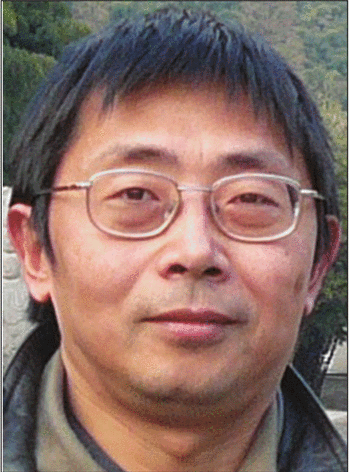
Speaker
SPEAKERS |
Prof. Jinsong Wu University of Chile, Chile | Jinsong Wu (Senior Member, IEEE) received the Ph.D. degree in electrical engineering from the Department of Electrical and Computer Engineering, Queen’s University, Kingston, ON, Canada, in 2006.,He received the 2020 IEEE Green Communications and Computing Technical Committee Distinguished Technical Achievement Recognition Award for his outstanding technical leadership and achievement in green wireless communications and networking, the 2017 IEEE Green Communications and Computing Technical Committee Excellent Services Award for his excellent technical leadership and services in the Green Communications and Computing Community, the 2017, 2019, and 2021 IEEE Systems Journal best paper awards, and the 2018 IEEE Green Communications and Computing Technical Committee Best Magazine Paper Award. He was elected as the Vice Chair of the Technical Activities of the IEEE Environmental Engineering Initiative (EEI) from 2017 to 2022. He was the Founder and the Founding Chair of the IEEE Technical Committee on Green Communications and Computing (TCGCC) from 2011 to 2017. He was the Co-Founder and the Founding Vice-Chair of the IEEE TCBD in 2014 and from 2014 to 2022, respectively. Since 2022, he has been the Chair of the IEEE Technical Committee on Big Data (TCBD). He was the very first proposer of IEEE Green ICT Journals or Transactions in 2012. He was a Proposer in 2021, the Founder in 2022, and has been the Founding Editor-in-Chief since 2022, for the new international journal, Green Technologies and Sustainability, (KeAi). He was the leading Editor and the coauthor of the comprehensive book, titled Green Communications: Theoretical Fundamentals, Algorithms, and Applications (CRC Press, September 2012). Speech Title:Environmental Sustainability and Intelligence as well as General Green Technologies Abstract:Although the term of green has been often used to refer to energy consumption reduction or energy efficiency by many people and literatures, green actually should refer to environmental sustainability in more general senses. Environmental sustainability issues have been important topics for recent years, which has impacted and will further impact individuals, enterprises, governments, and societies. Environmental sustainability is not simply regarding reducing the amount of waste or using less energy, but relevant to developing processes leading to completely sustainable human society in the future. The long term consequences of the relevant serious issues have not yet been fully forecasted, but it has been generally accepted in many communities that immediate responses are necessary. From 30 November to 12 December 2015, the 21th United Nations Climate Change Conferences of the Parties (COP 21) was held in Paris, France, as the a historical breakthrough and milestone towards securing the future Earth, a global agreement on the reduction of climate change, the text of which represented a consensus of the representatives of more than 193 countries attending it, which was a profound milestone for global environmental sustainability. Nowadays there is another significant tendency on data driven intelligence. This talk would discuss the history, technical issues, challenges, and new trends of data driven environmental sustainability and Intelligence. Further this talk will extend the view to general green technologies. |
Prof. Xiuxian Li Tongji University, China | Xiuxian Li (Senior Member, IEEE) received the B.S. degree in mathematics and applied mathematics and the M.S. degree in pure mathematics from Shandong University, Jinan, China, in 2009 and 2012, respectively, and the Ph.D. degree in mechanical engineering from the University of Hong Kong, Hong Kong, in 2016.,From 2016 to 2020, he has been a Research Fellow with the School of Electrical and Electronic Engineering, Nanyang Technological University, Singapore, and he has also been a Senior Research Associate with the Department of Biomedical Engineering, City University of Hong Kong, Hong Kong, in 2018. He held a Visiting Position with the King Abdullah University of Science and Technology, Thuwal, Saudi Arabia, in September 2019. In 2020, he joined Tongji University, Shanghai, China, where he is currently a Professor. His research interests include distributed control and optimization, game theory, and machine learning, with applications to autonomous vehicles, etc. |

